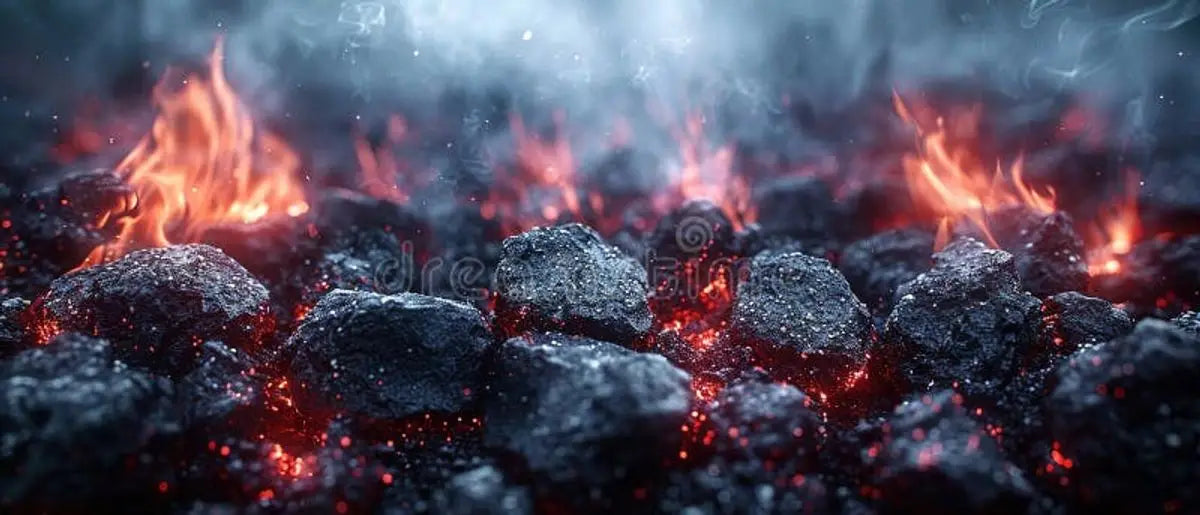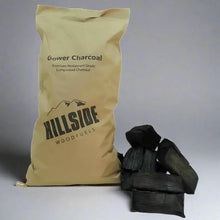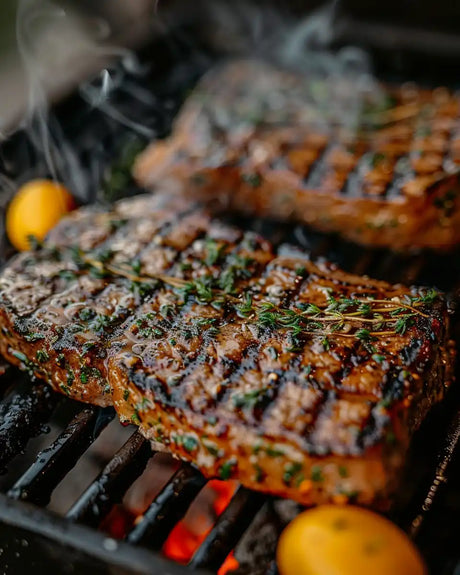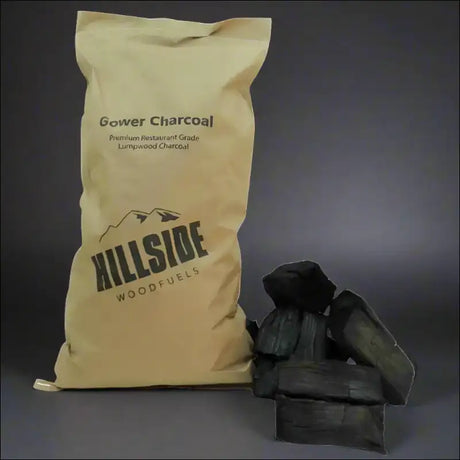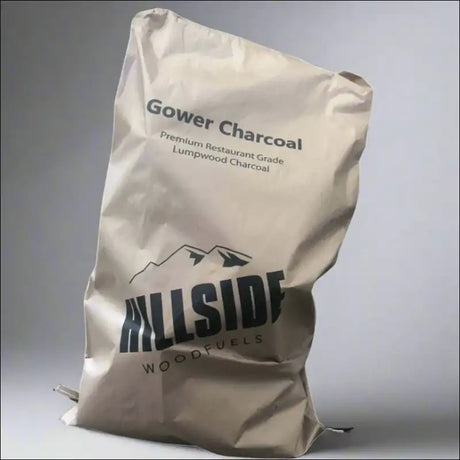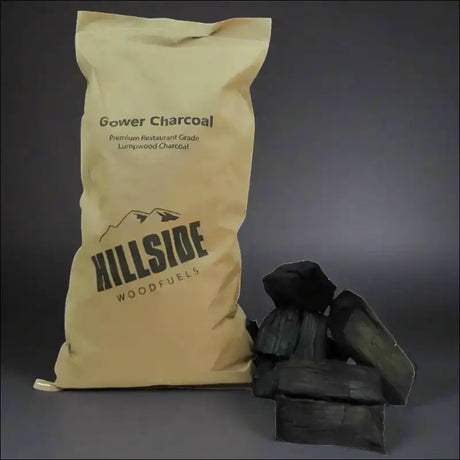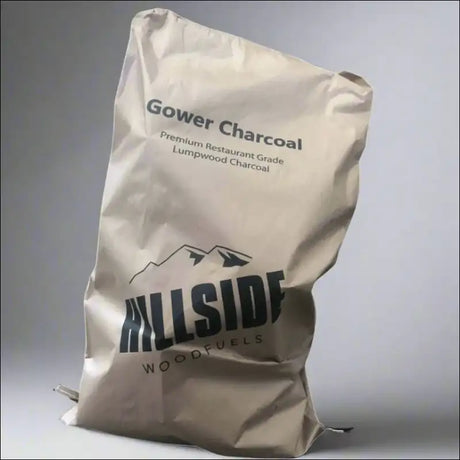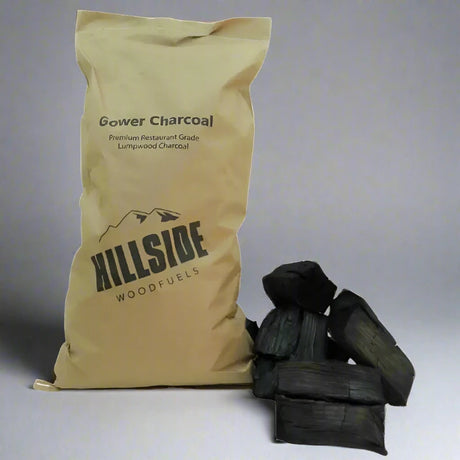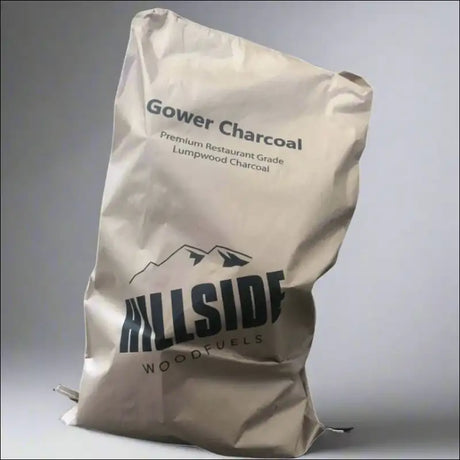The quality of the charcoal you use for cooking and heating can have profound effects on the environment and your health. This article explores the environmental impacts of traditional charcoal production, the benefits of sustainable alternatives, and innovations in eco-friendly cooking. It also discusses the personal and global advantages of carbon farming and how you can join the movement towards a greener future.
Key Takeaways
- Traditional charcoal production from unsustainable tropical forests contributes to deforestation and pollution, whereas sustainable alternatives like the Tawi stove use fallen sticks and produce biochar.
- Biochar, created during the smoke-free burning process of innovative stoves, captures carbon and promotes soil health, aiding in climate change mitigation.
- Modern outdoor stoves like the Tawi offer versatility, efficiency, and eco-friendly cooking, significantly reducing harmful emissions compared to traditional methods.
- Using a Tawi stove for carbon farming provides personal benefits like instant smoke-free cooking and a lifetime supply of biochar, which has various uses including water filtration.
- Community involvement and social media advocacy are crucial for spreading sustainable practices and supporting environmental change towards a greener future.
The Environmental Impact of Charcoal Production

The Unsustainable Harvesting of Tropical Forests
As we delve into the environmental impacts of charcoal production, it's crucial to acknowledge the role of unsustainable harvesting practices in tropical forests. These forests are often the source of the wood used to make traditional charcoal, a process that contributes to deforestation and biodiversity loss.
Deforestation not only threatens wildlife habitats but also disrupts local and global climate patterns. Here's a snapshot of the consequences:
- Loss of habitat for millions of species
- Disruption of water cycles affecting agriculture and water supply
- Increased greenhouse gases due to the release of stored carbon
By choosing sustainable charcoal alternatives, we can help mitigate these effects and protect our precious tropical forests for future generations.
The Tawi Stove, for instance, offers a glimpse of hope by utilizing fallen sticks instead of contributing to deforestation. This innovative approach not only preserves trees but also turns potential waste into a valuable resource. Embracing such alternatives is a step towards a more responsible and environmentally conscious lifestyle.
Pollution from Traditional Charcoal Kilns
We often overlook the environmental toll of our beloved barbecues, yet the traditional charcoal kilns used to fuel these gatherings are a significant source of pollution. Traditional kilns emit a cocktail of toxic smoke and carbon dioxide, contributing to the greenhouse gases warming our planet. The process is not only inefficient but also releases a myriad of pollutants that affect both our health and the environment.
Traditional charcoal production is notorious for its environmental footprint. Here's a snapshot of the pollutants released during the charcoal-making process:
- Carbon Monoxide (CO)
- Methane (CH4)
- Non-Methane Hydrocarbons (NMHC)
- Particulate Matter (PM)
By transitioning to sustainable alternatives, we can drastically reduce these emissions. The Tawi stove, for instance, offers a virtually smoke-free experience, turning harmful carbon dioxide into useful biochar, rather than releasing it into the atmosphere.
As we continue to enjoy outdoor cooking, it's imperative that we consider the impact of our choices. By adopting eco-friendly practices, we can preserve the joy of barbecues without compromising the health of our planet.
The Carbon Footprint of Charcoal Use
We often overlook the carbon footprint of our cooking choices, but the impact is significant. Traditional charcoal production and use contribute to the high carbon emissions that exacerbate climate change. When we opt for charcoal from unsustainable sources, we're not just affecting the environment locally; we're adding to a global issue.
Charcoal use is not just about the immediate release of carbon dioxide; it's also about the long-term effects on our atmosphere. The following points highlight the carbon footprint associated with traditional charcoal use:
- Deforestation contributes to the loss of carbon sinks, increasing atmospheric CO2 levels.
- Inefficient charcoal production methods release large amounts of greenhouse gases.
- The transportation of charcoal adds to its overall carbon footprint.
By choosing sustainable cooking methods, we can significantly reduce our carbon footprint and help mitigate the effects of climate change. It's not just a personal choice; it's a collective responsibility to our planet.
The Benefits of Sustainable Charcoal Alternatives

Reducing Harmful Emissions with Smoke-Free Options
We've all relished the warmth and camaraderie of a traditional barbecue, yet often overlook the environmental toll it exacts. Traditional charcoal barbecues emit toxic smoke and carbon dioxide, a potent greenhouse gas contributing to global warming. The production of charcoal, especially from unsustainable sources, compounds this issue.
However, we can make a significant difference by embracing smoke-free alternatives. These innovative solutions not only minimize harmful emissions but also enhance our health and the environment. For instance, the Tawi stove transforms the carbon in sticks into biochar rather than releasing it as carbon dioxide, operating with virtually no smoke.
By choosing smoke-free options, we're not just selecting a healthier way to cook; we're actively participating in the fight against climate change.
Here are some of the benefits of smoke-free cooking:
- Instant heat with a smokeless flame
- Reduction in fossil fuel use
- Free biochar production for life
Embracing these alternatives is a step towards a more sustainable lifestyle, aligning our outdoor cooking habits with our environmental values.
The Role of Biochar in Carbon Capture
We've come to understand the critical role that biochar plays in carbon capture, a process essential for mitigating the effects of climate change. Biochar is a stable form of carbon that doesn't easily degrade, allowing it to sequester carbon for centuries. By converting organic waste into biochar, we not only prevent the release of carbon dioxide but also enrich our soils, creating a win-win for the environment and agriculture.
The beauty of biochar lies in its simplicity and efficacy. It's a tangible solution that we can all contribute to, turning everyday waste into a resource that combats climate change.
Here's how biochar benefits carbon capture:
- It transforms biomass that would decompose and release CO2 into a stable form of carbon.
- Biochar retains carbon in soil, enhancing its fertility and water retention.
- The process of creating biochar itself is carbon-negative, meaning it removes more carbon from the atmosphere than it emits.
By embracing biochar, we're not just capturing carbon; we're revitalizing our soils and laying the groundwork for a more sustainable future. It's a clear example of how we can turn a problem into a solution, and it's something we can start doing right now. The activated charcoal from organic sources like coconut shells and lumpwood not only serves as a high-quality biochar for environmental purposes but also enhances alcoholic beverages with its smoky depth, adding complexity to the flavors we enjoy.
Promoting Soil Health in Extreme Weather Conditions
As we face increasingly erratic climate patterns, the role of biochar in maintaining soil health has become more crucial than ever. Biochar's porous nature helps retain water during droughts and improves soil structure to prevent erosion in heavy rains. This resilience is vital for sustainable agriculture.
Biochar also enriches the soil with nutrients, fostering a more robust ecosystem capable of withstanding extreme weather. Here's how biochar benefits the soil:
- Enhances water retention
- Improves nutrient availability
- Increases microbial activity
- Stabilizes pH levels
- Reduces need for chemical fertilizers
By integrating biochar into our soil management practices, we can significantly mitigate the impacts of climate extremes on our lands.
We must continue to explore and advocate for sustainable solutions like biochar that not only protect our environment but also bolster our food security in the face of unpredictable weather. The debate between coal and charcoal as fuel sources is ongoing, but the efficiency of biochar in promoting soil health is undeniable.
Innovations in Eco-Friendly Cooking

The Tawi Stove: A Revolution in Outdoor Cooking
We've embraced the Tawi Stove as a groundbreaking solution for outdoor cooking, aligning with our commitment to sustainability and efficiency. With four cooking surfaces and a smokeless flame, the Tawi Stove offers instant heat, making it a leader in versatility and fuel efficiency.
The Tawi Stove not only simplifies the cooking process but also serves as a tool for carbon farming. By converting the carbon in sticks and twigs into biochar, it contributes positively to the environment, rather than releasing harmful carbon dioxide.
Here are some of the compelling reasons to switch to the Tawi Stove:
- Instant smoke-free cooking experience
- Lifetime supply of biochar
- Reduction in fossil fuel use
- Contribution to eco-friendly tourism initiatives
If you're looking to make a real contribution to the future of our planet, each meal prepared on the Tawi Stove is a step in the right direction. Collecting your own free fuel can further reduce your carbon footprint.
How Biochar-Making Stoves Contribute to Forest Conservation
We've seen firsthand the transformative power of biochar-making stoves. By using these stoves, we've shifted from cutting down trees for fuel to utilizing fallen sticks and branches. This not only preserves our forests but also turns potential waste into a valuable resource: biochar.
The biochar-making process is a win-win for both the environment and local communities. It reduces the need for harmful deforestation and provides a sustainable source of energy. Moreover, the biochar produced can be used to improve soil fertility and water quality.
- Fallen sticks are collected, reducing forest degradation.
- The stoves produce biochar, which sequesters carbon.
- Biochar improves soil health, promoting forest growth.
By embracing biochar-making stoves, we are taking significant steps towards forest conservation and combating climate change. Our collective efforts can lead to a greener, more sustainable future.
The Versatility and Efficiency of Modern Outdoor Stoves
We've come to recognize the unparalleled adaptability and efficiency of modern outdoor stoves, particularly the Tawi stove. With four cooking surfaces and a smokeless flame providing instant heat, these stoves are not just a cooking appliance but a multifaceted tool for sustainable living. The Tawi stove, for instance, is not only a means to prepare food but also a producer of biochar, a valuable substance for both the garden and the environment.
Versatility is a key feature of these stoves. Whether you're simmering, sauteing, grilling, or boiling, the control is in your hands. The unrivalled air control system allows for precise temperature management, making every cooking experience a delight. Here's a glimpse at the benefits:
- Instant smoke-free cooking
- Free biochar for life
- Reduction in fossil fuel use
Embracing these stoves means taking a step towards reducing our carbon footprint. Each meal cooked is a contribution to a healthier planet, especially when utilizing locally sourced fuel.
The Tawi stove exemplifies the shift towards eco-friendly cooking solutions that don't compromise on functionality. By integrating the production of biochar into the cooking process, we're not just preparing meals; we're actively engaging in carbon capture. This innovative approach allows us to enjoy the pleasures of outdoor cooking while contributing positively to the climate and environment.
Personal and Global Benefits of Carbon Farming

Becoming a Carbon Farmer with the Tawi Stove
We've embraced the concept of carbon farming as a proactive step towards a more sustainable future. By using the Tawi Stove, we're not just cooking; we're actively participating in carbon capture. The Tawi Stove transforms the carbon in twigs and sticks into biochar, a stable form of carbon that doesn't contribute to atmospheric CO2 levels.
With every meal prepared on the Tawi Stove, we make a small but significant contribution to reducing fossil fuel use. It's a practical way to combat climate change from our own backyards.
The benefits of becoming a carbon farmer with the Tawi Stove are manifold:
- Instant smoke-free cooking with a versatile, fuel-efficient design
- A lifetime supply of biochar, with its myriad of uses
- The joy of engaging in an environmentally ethical cooking practice
By adopting the Tawi Stove, we're not just altering our cooking habits; we're joining a movement that values the health of our planet as much as the food on our plates.
Instant Smoke-Free Cooking and Its Advantages
We've embraced the Tawi Stove for its ability to provide instant, smoke-free heat, revolutionizing our outdoor cooking experiences. The immediate warmth and absence of smoke not only enhance our comfort but also protect our health and the environment. With the Tawi Stove, we're turning the carbon from our fuel into valuable biochar, rather than releasing it as harmful carbon dioxide.
- Instant heat with no waiting time
- Smokeless flame for a healthier cooking environment
- Four cooking surfaces for versatility
- Fuel efficiency, reducing the need for fossil fuels
By choosing the Tawi Stove, we're not just enjoying a superior cooking method; we're actively participating in the fight against climate change. The stove's design ensures that we're capturing carbon with every use, contributing to a greener future.
Moreover, the Tawi Stove is a sustainable alternative to traditional barbecues, which often rely on environmentally damaging charcoal. By reducing our reliance on such methods, we're taking a stand for the planet. Every meal we cook on the Tawi Stove is a step towards reducing fossil fuel use and embracing a more environmentally ethical lifestyle.
Lifetime Supply of Biochar and Its Uses
We've discovered that the Tawi stove not only produces clean energy but also generates a lifetime supply of biochar. This remarkable material has a wide array of applications, from improving soil health to purifying water.
- Soil Amendment: Biochar can be mixed into the soil to increase fertility and water retention, especially beneficial in areas with extreme weather patterns.
- Water Filtration: Used in water filters, biochar helps remove impurities, providing access to clean drinking water.
- Composting: Adding biochar to compost piles can reduce odors and accelerate the composting process.
By integrating biochar into our daily practices, we're not just benefiting our gardens or households; we're actively participating in a global movement towards sustainability.
The versatility of biochar is evident, and with the Tawi stove, we're empowered to create this valuable substance while cooking. Imagine a world where every outdoor meal contributes to a healthier planet. That's the future we're working towards, one Tawi stove at a time.
Joining the Movement Towards a Greener Future

How Social Media Can Help Spread Sustainable Practices
We've seen firsthand how social media can amplify our message and spread the word about sustainable charcoal alternatives. By sharing our experiences and successes, we can inspire others to join the movement. For instance, our website page promotes Gower Charcoal, offering organic lumpwood charcoal for grilling, and includes social media links to encourage community engagement.
We believe that each share, like, or comment can lead to a ripple effect of positive environmental change.
Here's how we can utilize social media effectively:
- Share stories of how we've transitioned to eco-friendly cooking methods.
- Post before-and-after pictures of areas where biochar has improved soil health.
- Engage with followers by providing tips on reducing their carbon footprint.
- Encourage the use of hashtags to increase the visibility of our cause.
By harnessing the power of social media, we can share this technology across the world, turning hundreds of kilos of biochar into millions.
The Importance of Community in Environmental Change
We've seen firsthand the power of community engagement in driving environmental change. When we come together, our collective actions can lead to significant impacts on climate change. Our unity is our strength in the fight against environmental degradation.
- Community initiatives can amplify individual efforts.
- Shared knowledge fosters innovation and efficiency.
- Local movements can inspire global action.
By pooling our resources and working collaboratively, we can create a ripple effect that extends far beyond our immediate surroundings.
The Tawi Stove project is a prime example of how community involvement can lead to widespread environmental benefits. By adopting sustainable practices, such as using the Tawi Stove for outdoor cooking, we not only reduce our carbon footprint but also contribute to soil health and reduce reliance on fossil fuels. Our experience in Kenya, where we have not chopped down a tree for firewood since 2002, demonstrates the potential for community-led initiatives to make a real difference.
Taking Action: From Purchasing to Advocacy
We've learned that enhancing sustainability in charcoal production is not just about making better choices for ourselves, but also about influencing the world around us. Buying a Tawi Stove is the first step towards becoming a carbon farmer and actively participating in the reduction of environmental harm.
By following us on social media, we can stay connected and share innovative ideas on how to use biochar and the Tawi Stove. It's a platform where we can collectively promote a circular economy and reduce energy waste. Here's how we can start:
- Purchase a Tawi Stove and begin carbon-negative cooking.
- Engage with our community on social media for updates and tips.
- Share your experiences and encourage others to join the movement.
We are not just consumers; we are agents of change. By taking these steps, we contribute to a larger effort to fight climate change and promote soil health in the face of extreme weather conditions.
Conclusion
In conclusion, the quality of the charcoal you use has significant environmental and health implications. Traditional charcoal production contributes to deforestation and releases harmful pollutants, but sustainable alternatives like the Tawi stove offer a promising solution. By using fallen sticks and converting them into biochar, the Tawi stove provides a smoke-free cooking experience while capturing carbon and reducing greenhouse gas emissions. Embracing such innovative technologies not only benefits individual users with efficient and versatile cooking options but also contributes to a larger movement towards carbon farming and climate change mitigation. As we become more conscious of our choices, opting for high-quality, eco-friendly charcoal alternatives can lead to a healthier planet and a more sustainable future for all.
Frequently Asked Questions
What environmental issues are associated with traditional charcoal production?
Traditional charcoal production contributes to the unsustainable harvesting of tropical forests, pollution from inefficient kilns, and a significant carbon footprint due to the release of carbon dioxide and other harmful emissions.
How does the Tawi stove help reduce environmental impact?
The Tawi stove is designed to burn fallen sticks and twigs instead of charcoal, which is more sustainable. It uses a virtually smoke-free process that turns solid carbon (biochar) into a useful product, reducing harmful carbon dioxide emissions.
What are the benefits of using biochar in soil?
Biochar contributes to carbon capture, promotes soil health by retaining nutrients and water, and helps soils cope with extreme weather conditions, making it an important tool in combating climate change and improving agricultural practices.
Can the Tawi stove contribute to forest conservation?
Yes, the Tawi stove encourages the use of fallen branches and twigs, which prevents the need for cutting down trees for fuel, thus contributing to forest conservation and sustainable energy practices.
What are the personal benefits of using the Tawi stove for cooking?
The Tawi stove offers instant smoke-free cooking with four surfaces and a smokeless flame, making it a versatile and fuel-efficient outdoor stove. It also provides a lifetime supply of biochar, which has numerous uses.
How can I participate in the movement towards a greener future with the Tawi stove?
You can become a carbon farmer by using the Tawi stove for carbon-negative cooking, reducing your reliance on fossil fuels, and capturing carbon. Engaging with social media to spread sustainable practices and advocating for environmental change are also ways to contribute.

